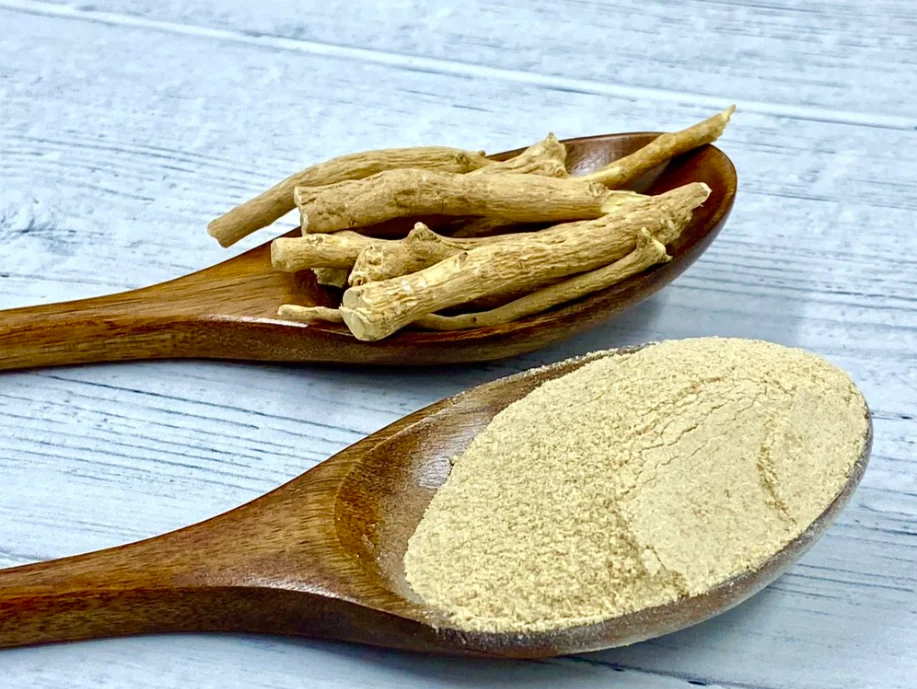
Broccoli is like a superhero in the veggie world. It’s not just your average vegetable – it’s packed with tons of good stuff that makes it super important for a healthy diet. It’s loaded with nutrients, vitamins, and antioxidants that make it not only tasty but also really good for you. Let’s dive into the 12 amazing ways broccoli boosts your health!
Health Benefits of Broccoli:
1. Nutrient-Rich Superfood
Delving deeper into the rich tapestry of broccoli’s nutritional profile reveals a cornucopia of essential elements that positions it as a true superfood. Beyond its vibrant green florets lie a myriad of vitamins, minerals, and antioxidants, all working in harmony to contribute to your overall health and vitality.
Vitamin C: At the forefront of broccoli’s nutritional prowess is its impressive vitamin C content. This essential nutrient is a potent antioxidant that not only fortifies your immune system but also plays a crucial role in collagen synthesis. From promoting skin elasticity to supporting wound healing, vitamin C in broccoli is a cornerstone of holistic health.
Vitamin K: Broccoli emerges as a notable source of vitamin K, vital for bone health and blood clotting. Adequate vitamin K intake ensures optimal bone density, reducing the risk of fractures, and plays a pivotal role in maintaining cardiovascular health.
Vitamin A: In the form of beta-carotene, broccoli contributes to your daily vitamin A intake. This nutrient is essential for vision health, immune function, and skin integrity. The beta-carotene in broccoli acts as a potent antioxidant, shielding your cells from oxidative stress.
Folate: Broccoli stands out as a folate-rich vegetable, contributing to DNA synthesis and repair. This is especially crucial during periods of rapid cell division, such as pregnancy. Adequate folate intake supports overall cellular health and helps prevent neural tube defects during fetal development.
Potassium: An often-overlooked mineral, potassium plays a pivotal role in maintaining healthy blood pressure and supporting proper muscle and nerve function. Broccoli’s potassium content makes it a valuable addition for those aiming to regulate their blood pressure naturally.
Manganese: This trace mineral, found in abundance in broccoli, is integral to various metabolic processes, including the metabolism of amino acids, cholesterol, and carbohydrates. Manganese’s presence in broccoli supports overall nutrient absorption and utilization.
2. Cancer-Fighting Properties
It reputation as a cancer-fighting superhero revolves around a potent compound known as sulforaphane. This bioactive phytochemical unleashes a multifaceted defense against cancer, positioning broccoli as a crucial component in cellular health. Sulforaphane’s antioxidant prowess is pivotal in neutralizing free radicals, unstable molecules that contribute to DNA damage and cancer development. Beyond antioxidants, broccoli aids in detoxification by inducing enzymes that eliminate carcinogens and toxins, reducing the risk of cellular harm. Additionally, its anti-inflammatory properties create an environment where cancer cells struggle to thrive.
3. Heart Health Booster
Beyond its culinary appeal, broccoli emerges as a heart health champion, contributing to cardiovascular well-being through a combination of nutrients and unique compounds. This cruciferous vegetable’s positive impact on heart health is multifaceted, making it a valuable addition to a heart-conscious diet.
Fiber for Blood Pressure Regulation: Broccoli is rich in fiber, a dietary component known for its role in regulating blood pressure. The fiber content, combined with antioxidants, promotes arterial health and helps maintain optimal blood pressure levels. Regular consumption becomes a flavorful strategy for cardiovascular support.
Cholesterol Management with Antioxidants: Antioxidants in broccoli, including sulforaphane, play a pivotal role in managing cholesterol levels. By reducing oxidative stress and inflammation, these compounds contribute to a healthier lipid profile, lowering the risk of heart disease.
Potassium’s Cardiovascular Harmony: The presence of potassium in broccoli adds another layer to its heart-healthy attributes. This mineral is crucial for maintaining proper heart rhythm and muscle function. Broccoli becomes a natural source of potassium, supporting cardiovascular harmony.
Vitamin K for Arterial Integrity: Broccoli’s significant vitamin K content contributes to arterial health. Vitamin K is essential for proper blood clotting and helps prevent calcium accumulation in the arteries, promoting their flexibility and integrity.
Overall Cardiovascular Support: The collective impact of these heart-friendly elements positions broccoli as a holistic cardiovascular ally. Whether steamed, roasted, or included in salads and stir-fries, incorporating broccoli into your meals can be a delicious and proactive choice for heart health. By enjoying this nutrient-packed vegetable, you’re not just savoring its taste; you’re nourishing your heart and taking a flavorful step towards a healthier cardiovascular future.
4. Digestive Support
Beyond its vibrant hue, plays a subtle yet crucial role in digestive health. Packed with bromelain, an enzyme aiding in protein breakdown, it eases digestion and potentially alleviates issues like bloating.
The fiber content ensures digestive regularity, preventing constipation, while anti-inflammatory properties offer soothing relief. It contribution extends to nourishing the gut microbiome, promoting overall digestive wellness. Whether steamed, roasted, or tossed in salads, incorporating broccoli into your meals is a delightful and natural approach to supporting a happy and harmonious digestive system.

5. Bone Health Maintenance
Within its verdant florets lie essential nutrients such as calcium, magnesium, and phosphorus, pivotal constituents instrumental in fortifying and sustaining robust skeletal structures. This symphony of nutrients, when harmonized with the presence of vitamin K, actively contributes to bolstering bone density, thereby mitigating the ominous specter of osteoporosis.
6. Anti-Inflammatory Effects
Chronic inflammation is linked to many and various health conditions, including the arthritis and heart disease. Broccoli’s antioxidants and anti-inflammatory compounds help combat inflammation, offering potential relief to individuals dealing with inflammatory disorders.
7. Weight Management Support
For those on a weight management journey, broccoli is a valuable ally. Low in calories and high in fiber, it provides a feeling of fullness, aiding in weight control. The nutrient density ensures that you receive essential vitamins and minerals without excess calories.
8. Enhanced Vision Protection
Beyond its already impressive array of benefits, broccoli contributes to maintaining optimal vision. Rich in lutein and zeaxanthin, antioxidants known for their eye-protective properties, broccoli supports vision health.
These compounds help safeguard the eyes from age-related macular degeneration and other vision-related issues, making broccoli a valuable addition for those prioritizing eye care.
9. Hormonal Balance Support
Broccoli contains compounds like indole-3-carbinol that play a role in supporting hormonal balance, particularly in relation to estrogen. Research suggests that these compounds may have a protective effect against certain hormone-related cancers. By including broccoli in your diet, you’re not just nourishing your body; you’re also contributing to hormonal well-being.

10. Cognitive Function Enhancement
Studies have hinted at broccoli’s potential role in supporting cognitive function. The antioxidants and anti-inflammatory properties found in this cruciferous vegetable may have neuroprotective effects, potentially reducing the risk of cognitive decline as you age. Including broccoli in your diet becomes a flavorful strategy for promoting brain health.
11. Blood Sugar Regulation
Beyond its culinary prowess, broccoli emerges as a prudent choice for maintaining stable blood sugar levels. Sporting a low glycemic index, it orchestrates a gradual release of glucose, thwarting abrupt spikes. Its copious fiber content plays the role of a moderator, delicately regulating glucose absorption, thereby bolstering glycemic control and mitigating the perils associated with insulin resistance.
Within broccoli’s arsenal lie antioxidants like vitamin C and sulforaphane, champions of metabolic health, potentially amplifying insulin sensitivity. Furthermore, its low-calorie, high-fiber composition positions broccoli as an ally in the realm of weight management. Whether tossed into salads or woven into stir-fries, integrating broccoli into your culinary repertoire stands as a delectable and nutritious strategy in the pursuit of blood sugar regulation. Embrace this cruciferous gem not solely for its gustatory delight but as a palatable avenue toward naturally nurturing optimal blood sugar levels.
12. Skin Radiance and Repair
The vitamins and antioxidants in contribute to skin health. Vitamin C, in particular, plays a key role in collagen synthesis, promoting skin elasticity and repair. Including broccoli in your diet can potentially contribute to a radiant complexion and may aid in the recovery from skin-related issues.




Hello there, just became aware of your blog through Google, and found that it’s really informative.
I am going to watch out for brussels. I will appreciate if you continue this in future.
A lot of people will be benefited from your writing.
Cheers! Najlepsze escape roomy
Very interesting topic, appreciate it for putting up.?